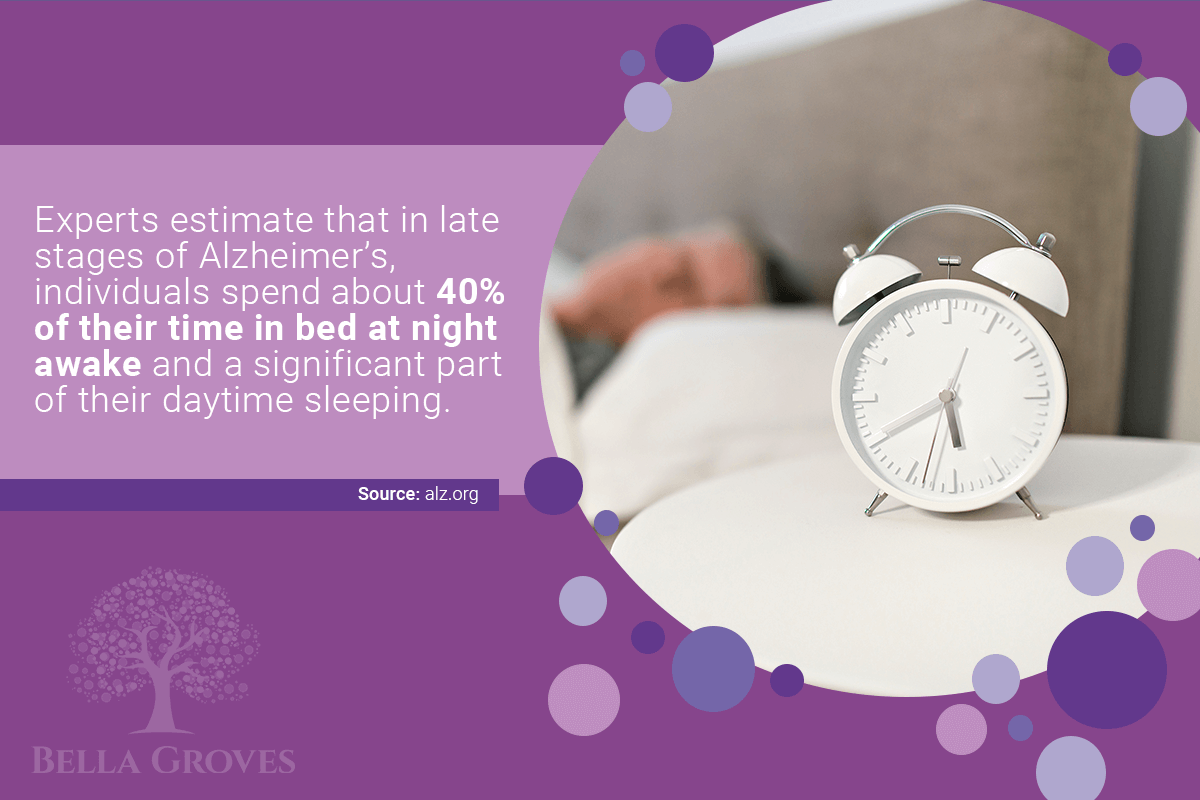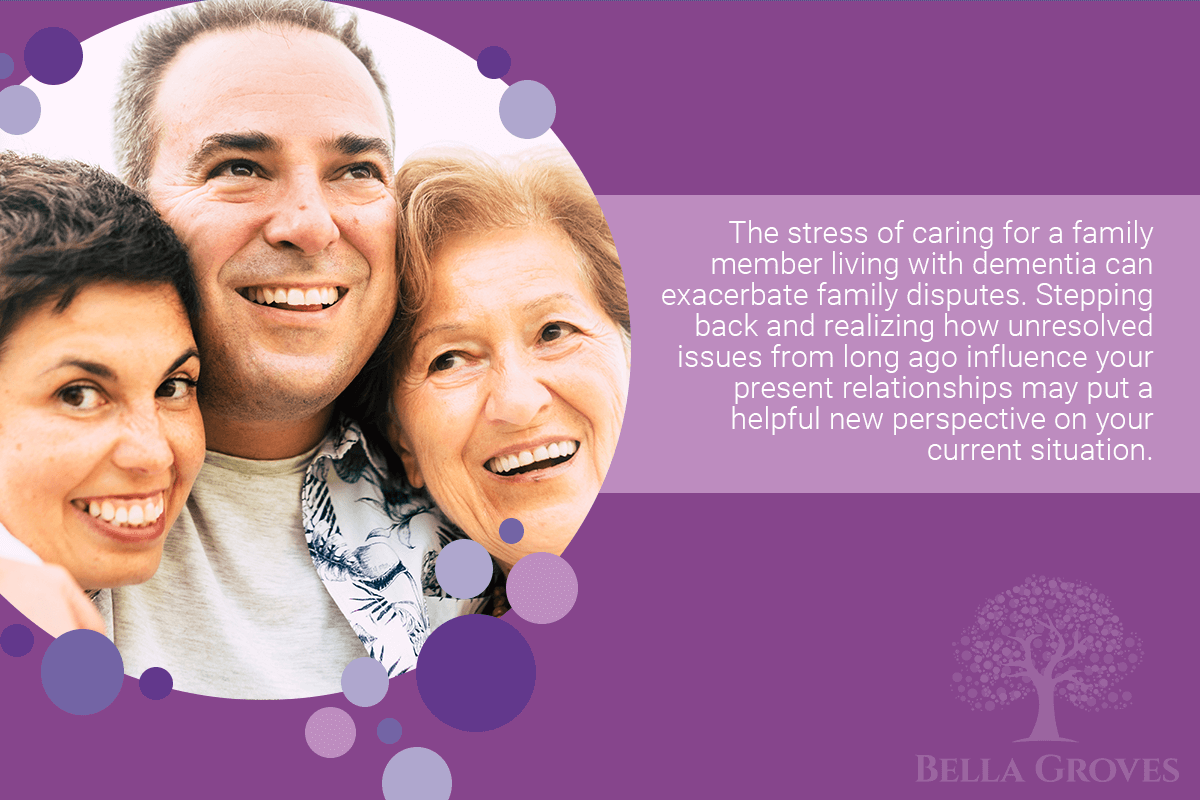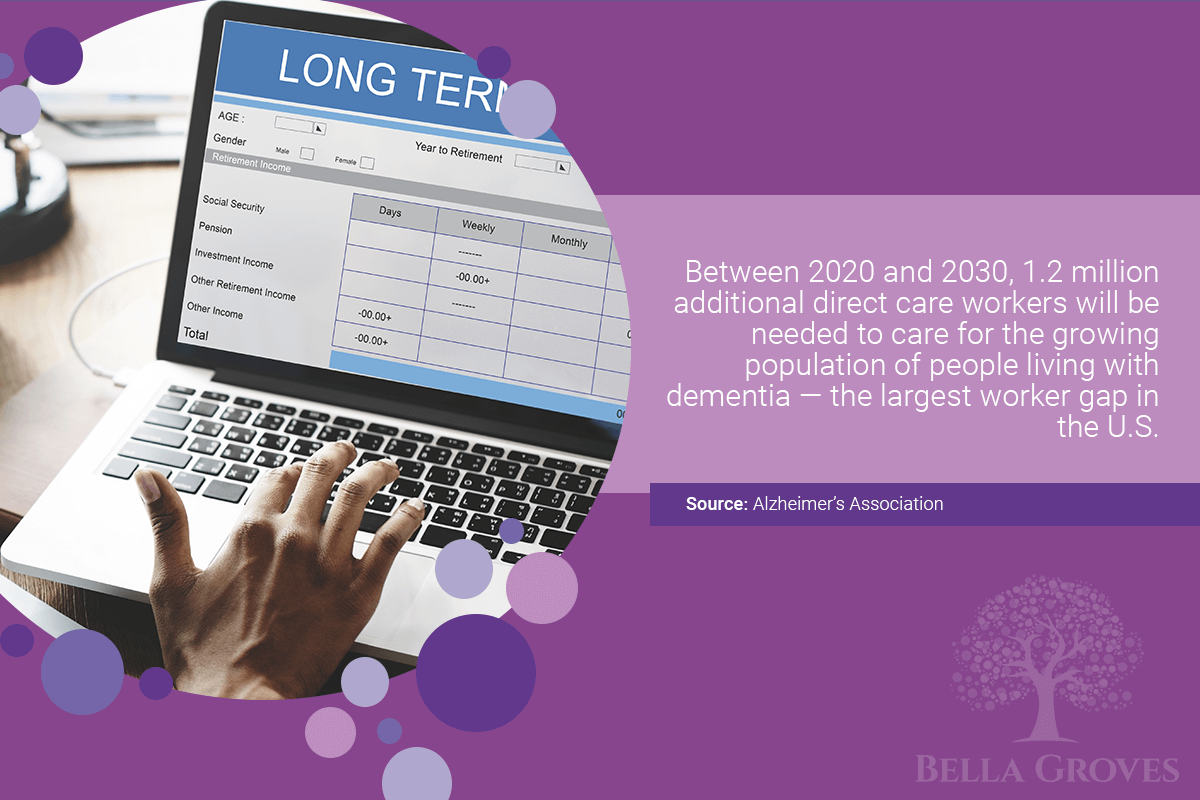
Dementia and Sleep: How Does Dementia Impact Sleep Habits?
“Dementia is caused by a variety of diseases that cause damage to brain cells. This damage interferes with the ability of brain cells to communicate with each other. When brain cells cannot communicate normally, thinking, behavior, and feelings can be affected (alz.org).”
As a result, the impact of dementia goes far beyond memory retention. It impacts a person’s communication skills, coordination, and ability to fall and stay asleep during the night.
Providing quality dementia care starts with understanding the nuances of the condition, and how it impacts a person’s life. Our Bella Groves team is sharing the connection between dementia and sleep and how to support a person living with dementia in getting a better night’s rest.
The Impact of Quality Sleep
Sleep is an essential process that helps our bodies function properly; it’s as vital to our physical wellness as eating and drinking water and allows us to repair and restore our brains.
Lack of sleep doesn’t just make us feel drowsy; sleep deprivation impacts our ability to learn, focus, and react and has been linked to chronic health problems, including heart disease, kidney disease, high blood pressure, diabetes, stroke, obesity, and depression.
Our sleep patterns are controlled by two systems in the body that work together to control the amount and quality of sleep that we get each night:
- Our circadian rhythm
- Sleep drive
Circadian rhythms are physical, mental, and behavioral changes that follow a 24-hour cycle. These natural processes respond primarily to light and dark. As a result, our bodies get tired when it gets dark outside and wake up when the sun rises. However, certain circumstances can disrupt our circadian rhythm. For example, traveling to different time zones can lead to jet lag, impacting a person’s sleep pattern. When the circadian rhythm is thrown off, it leads to significant sleep problems.
A person’s sleep drive is essentially an individual’s need for sleep; when someone has been awake for a long period of time or a person experiences a more exhausting daily schedule, the sleep drive tells that person it’s time to sleep.
Dementia and Sleep
People living with dementia experience cognitive changes, including changes to their circadian rhythm. The result is that they are often unable to follow a 24-hour sleep-wake cycle and instead sleep excessively during the day and sleep much less at night.
Sleep problems affect up to 25% of people with early to middle-stage dementia and up to 50% of those with late-stage dementia. These disturbances start to get worse as dementia progresses.
Sundowning
In addition to sleep disturbances, the disruption of a person’s sleep-wake cycles can also lead to sundowning. Sundowning is an increase in confusion, restlessness, or disorientation during the evenings. These symptoms can sometimes continue throughout the night, making it hard for a person living with dementia (and their care partner) to get a restful night’s sleep.
READ OUR BLOG: “What is Sundowning Behavior? Understanding Late-Day Confusion” to learn more.
Finding Solutions
Creating and maintaining healthy sleep routines (sometimes called sleep hygiene) is the best way to support a person living with dementia. Some things that can help to establish that routine are:
- Wake up around the same time each day and get exposure to sunlight
- Have some sort of physical activity in the first few hours after waking
- Limit napping (i.e., napping all throughout the day)
- Have consistent mealtimes each day
- Have some sort of physical activity in the afternoon
- Incorporate activities throughout the day that utilize their cognitive skills
- Wind down and turn down lights as the day is ending
Beyond changes to their sleep-wake cycle,sleep disruptions are often caused by discomfort, pain, temperature, etc. Establish a calming environment when it’s time to go to sleep. Ensure the room is comfortable, close the blinds, and adjust lighting to avoid harsh shadows.
When it comes to dementia and sleep, flexibility is key. We often think that the best place to get a good night’s sleep is in our bed, but be open to the fact that a person living with dementia may want to sleep elsewhere. For example, if your loved one prefers to sleep on their recliner, on the couch, in the guest bedroom, or some other place other than their bedroom, it may be best to let them rest safely where they are rather than forcing them to sleep in their bed.
At Bella Groves, we are dedicated to helping families feel confident in their abilities to think through the different scenarios they may experience when caring for a person living with dementia. Our dementia care community in San Antonio offers residential support to those with dementia, while our information and coaching options provide resources, strategies, and encouragement to help all care partners.
To discover more about what we do and why, we encourage you to visit our website.


